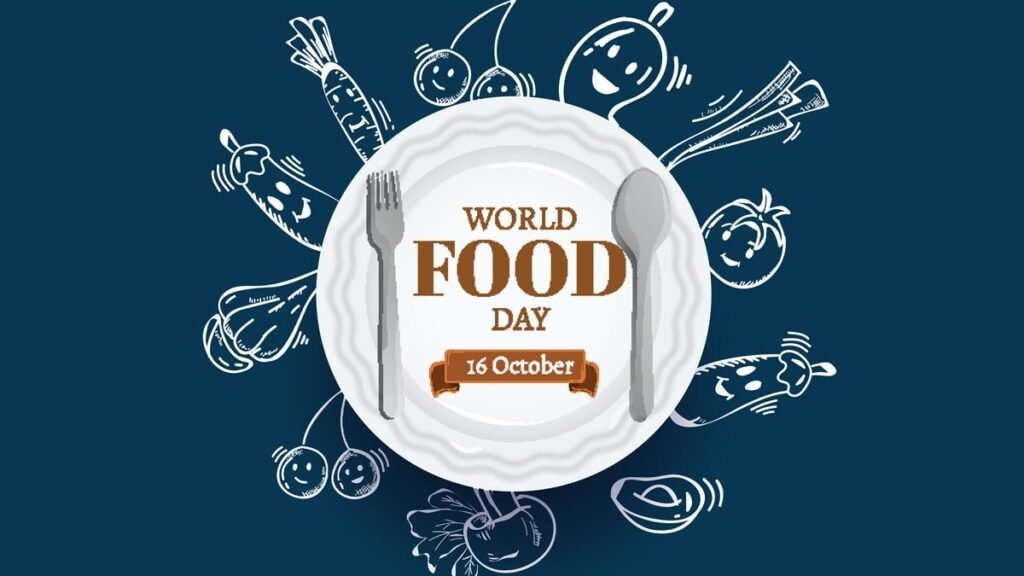World Food Day 2024: Shocking Facts About Global Hunger And How We Can Help Reduce It

World Food Day, celebrated annually on October 16th, highlights the global issue of hunger and the urgent need for action. Despite the world’s farmers producing enough food to feed everyone, hunger persists due to various factors such as poverty, inequality, conflict, and climate change. Despite the fact that the world’s farmers produce enough food to feed more than the global population, approximately 733 million people still face hunger. This paradox is driven by a range of factors, including climate change, conflicts, economic downturns, and the lingering effects of the COVID-19 pandemic, which disproportionately impact the most vulnerable populations.
Also Read: WHO Says 1.6 Million People Globally Fall Ill Daily Due To Contaminated Food
The Stark Reality of Hunger: Global Statistics
Hunger is not merely a statistic; it represents the daily struggles of millions. The United Nations estimates that over 2.8 billion people cannot afford a healthy diet, leading to various forms of malnutrition, including undernutrition, micronutrient deficiencies, and obesity. Malnutrition cuts across socio-economic classes, highlighting an alarming trend where individuals in wealthier nations also grapple with unhealthy eating habits. In many cases, vulnerable groups rely heavily on cheaper, less nutritious staple foods, exacerbating the cycle of hunger and malnutrition.
World Food Day 2024 Theme:
This year’s theme is ‘Right to foods for a better life and a better future’. The right to food is a fundamental human right recognized by the Universal Declaration of Human Rights. Access to nutritious food is essential for human development, health, and well-being. Unfortunately, several worldwide are unable to afford a healthy diet.
Also Read: Food Authority Warns Against Artificial Ripening Of Fruits Using Calcium Carbide
The Impact of Hunger and Malnutrition
Hunger and malnutrition have far-reaching consequences, affecting individuals, communities, and nations. Undernutrition, micronutrient deficiencies, and obesity are all forms of malnutrition that can have severe health consequences. Additionally, hunger can lead to poverty, social instability, and conflict.
Addressing The Root Causes Of Hunger
To combat global hunger, we must address its root causes, which include poverty, inequality, conflict, and climate change. Transforming agrifood systems is crucial for building more resilient and inclusive livelihoods. This involves promoting sustainable agriculture practices, reducing food waste, and ensuring equitable access to food resources. The Food And Agriculture Organization Of The United States suggests the following ways in which an individual can help with food security and availability.
Also Read: Food Authority Launches Initiatives To Control Food Adulteration In India
Eating a balanced diet gives you nutrition and keeps you healthy.
Photo Credit: iStock
What You Can Do to Help Reduce Global Hunger
As individuals, we can play a significant role in combating global hunger. Here are some actions you can take:
- Raise Your Voice: Advocacy is powerful. Engage with your community and raise awareness about the importance of food security. Work with local media to highlight efforts that promote the right to food. Collective voices can influence policymakers and push for necessary changes.
- Choose Local and Seasonal Foods: Eating locally sourced, seasonal foods not only supports local economies but also contributes to sustainable agricultural practices. Incorporate a variety of fresh vegetables, fruits, legumes, nuts, and whole grains into your diet, which can also improve your health.
- Embrace Healthy Habits: Encourage healthy eating among friends and family. By promoting nutritious choices, you contribute to the overall well-being of your community and help combat public health issues related to poor diet.
- Diversify Your Diet: Incorporate traditional and locally grown foods into your meals. This practice not only enhances biodiversity but also supports local farmers and keeps traditional culinary practices alive.
- Practice Food Safety: Be vigilant about food safety. Proper storage and handling can reduce the risk of foodborne illnesses and ensure that the food you consume is safe.
- Become Label Literate: Understanding food labels is crucial for making informed dietary choices. Learn to read labels for nutritional information and to minimize food waste by discerning between “best before” and “use by” dates.
- Know Your Dietary Guidelines: Familiarize yourself with your country’s dietary guidelines. They provide essential advice on how to maintain a balanced and nutritious diet.
- Support Local Farmers: Advocate for the rights of those who grow our food. Raising awareness about the challenges faced by farmers helps build a more equitable food system.
- Reduce Food Waste: Plan meals to minimize waste, and find creative ways to use leftovers. Composting organic waste is another effective way to reduce your environmental impact.
- Get Involved in Humanitarian Efforts: Whether through donations or volunteering, offering support during humanitarian crises can make a significant difference in the lives of those affected by food insecurity.
- Know Your Rights: If your right to food is compromised, seek help through appropriate channels, including human rights commissions or the United Nations.
- Stay Informed: Keep yourself updated with credible information regarding food security issues. An informed citizenry is essential for advocating effective solutions.
By working together, we can create a world where everyone has access to nutritious food. Let’s raise our voices, support local farmers, and reduce food waste to build a more sustainable and equitable future for all.








